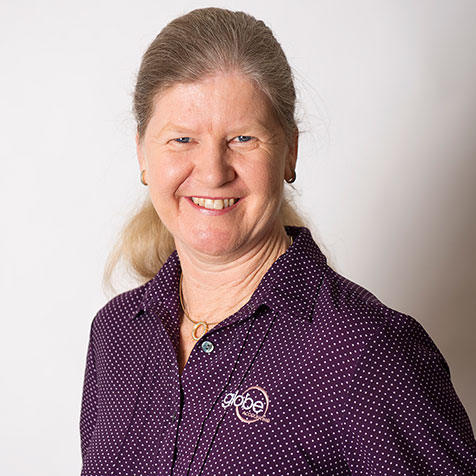Loading component...
At a glance
- In 2020, the National Debt Helpline took more than 130,000 calls from individuals facing difficulties owing to the pandemic.
- With government stimulus measures approaching an end, many public practitioners will be called upon to assist clients struggling to cope with financial stress.
- Accountants have an important role to play in joining forces with financial counsellors to ensure the best possible support to those who need it the most.
For many individuals and business owners, the COVID-19 pandemic continues to provide a rough financial ride.
While government stimulus and support measures have shored up some bank accounts temporarily, it is expected that the real impact of COVID-19 will not emerge until mid-2021.
It is then that many public practitioners may find themselves helping a growing number of clients who are seeking advice not only on tax or investment matters, but also on dealing with mounting debt.
In such instances, many practitioners refer clients to financial counselling services such as the National Debt Helpline, which took more than 130,000 calls last year alone.
“We were faced with a group of people, for example those in tourism, who never thought they would be in a situation in which they wouldn’t have enough money,” says Fiona Guthrie AM, CEO of Financial Counselling Australia (FCA), which coordinates the helpline.
Tony Carr CPA, who recently completed a one-year RMIT Diploma of Financial Counselling course, will be among the 800 financial counsellors nationally to provide face-to-face services to the next wave of small and medium enterprise (SME) pandemic casualties.
Retiring after 55 years as an accountant, Carr hopes to employ his financial skills in the community – and believes many accountants with a philanthropic bent would like to do the same.
“Financial counselling isn’t just about sorting out clients’ finances,” says Carr. “The rewards come from the success of helping a person to get on their feet.”
Financial counsellors often support clients free of charge as they make changes to their living expenses and address debts. The services are provided by community-based agencies such as Anglicare, or the Salvation Army, and funded primarily by the federal and state governments.
For public practitioners, being aware of the availability and nature of financial counselling services may be crucial to helping clients who are likely to run into trouble, says Carr.
An opportunity to work together
The role of financial counsellors is broad and may include negotiating payment arrangements, explaining the pros and cons of bankruptcy, sourcing legal services or explaining what debt collectors can and cannot do, says Guthrie.
Financial counsellors can also ensure clients have up-to-date taxation records, especially if they are needed to apply for government assistance, adds Helen Davis, general manager of FCA’s small business bushfire counselling support line.
However, financial counsellors don’t actually prepare the records – that is the accountant’s role.
“Financial counselling is a free service that works with people who have debts they can’t pay,” she says. “We can spend time with people, listening to their concerns and supporting them to be emotionally ready to engage in difficult discussions like bankruptcy and liquidation.”
"Financial counselling isn't just about sorting out clients' finances. The rewards come from the success of helping a person to get on their feet."
Davis believes “there is a good opportunity for financial counsellors and accountanats to complement each other’s services.
“Our skill set is helping people work through debt scenarios, and that frees up the accountant to use their professional expertise to most value.”
However, she also believes it would be helpful if accountants considered referring a client who is likely to struggle with a debt load to a financial counsellor sooner, rather than later.
She says that FCA does receive referrals from the Australian Taxation Office, as well as lending institutions, and also refers on clients to accountants for tax matters.
From drought to COVID-19
Pauline Pickering FCPA, a partner at Globe Accounting in Warwick, Queensland, has referred nearly 30 clients to the Rural Financial Counselling Service (Southern Queensland) (RFCSSQ).

“The support financial counsellor Micheal Fagg, who has experience in banking and with Centrelink, has given our clients cannot be underestimated,” she says.
“While COVID-19 has provided a number of challenges for our farmers, the drought early last year saw many in financial difficulty.
“We would have farmers come in who didn’t have a crop coming up, couldn’t sell their cattle and were thinking about going to the bank and extending their overdraft.
“While we would talk to the bank, we could refer them to Michael to see what sort of assistance or grants they may be eligible for.”
One farming client needed assistance with a superannuation compliance issue that had negatively affected mental health.
“While we try to assist our clients any way we can and within their budget, we are running a small business as well, and need to cover our overheads and staff wages. A service that we can refer to, like the RFCSSQ, is invaluable to us,” says Pickering.
Recently, Pickering also had the opportunity, through CPA Australia, to study to become an accredited mental health first aider.
“This is a course specifically for financial service professionals and gives us some skills to assist clients who may be suffering with mental health issues connected with financial distress.”
CPA Australia resource:
Complementary roles
Besides assisting with grant applications, the financial counselling service has also helped clients with issues such as cash flow budgeting, says Pickering.
“In what some would consider the accounting space, Michael has also talked to clients in difficulty about whether they need to restructure and succession planning,” Pickering says.
“But I believe we should all be working in the best interests of the client, and I know that, when their business gets back on track, they are still going to come back to us and need our services.”
A former policy adviser for CPA Australia, Jan Barned now trains SMEs and not-for-profits, in business management and counsels business owners in financial distress.
“Financial literacy is an important and often overlooked aspect to managing a business,” she says.
During 2020, Barned, CEO of Financial Management Trainer, assisted SMEs with accessing government grants, helped businesses develop recovery plans and liaised with assistance agencies.
“Businesses in northeast Victoria lost the whole of the summer season and about 70 to 80 per cent of their annual revenue,” she says. “When it came to COVID-19, they didn’t have a buffer.”
Barned says public practitioners have some of the skills to help people with debt issues or recovery planning, but professional accountants wishing to undertake a role as a financial counsellor should complete the financial counselling diploma course and register with their state association.
Scenario: How financial counselling could work

Bill operated a landscaping and plant propagation business. Following the first COVID-19 lockdown in Victoria, he lost his income and became depressed and anxious.
He was referred to a small business financial counsellor as part of the state-funded Partners in Wellbeing program.
Despite being a small business owner, Bill had been told by the ATO that he was not eligible for JobKeeper.
With his permission, the financial counsellor contacted the ATO to seek a review of his suitability. This raised an issue of non-compliance: Bill had missed a recent BAS payment.
Unfortunately, without an income, Bill was unable to pay the outstanding debt. He was also unable to apply to receive support from Centrelink through the MyGov app, as his smart phone had stopped working during lockdown and he couldn’t afford to get it repaired.
Bill was concerned about the prospect of his mobile service provider and his bank taking legal action for debt recovery.
The financial counsellor negotiated to have all outstanding debt with the telco waived and the contract cancelled, while the bank agreed to a 70 per cent reduction in the amount owed and an affordable repayment plan.
Bill withdrew A$10,000 from his superannuation to buy a new phone, re-establish his plant propagation nursery and buy supplies.
He cleared his small debt to the ATO and completed a JobKeeper application.
With the support of this program, Bill has been able to restructure and restart his business.
As part of the Victorian Government’s A$26 million Wellbeing and Mental Health Support program for small businesses, the Partners in Wellbeing Helpline supports small business owners and their employees.
Victorian clients can contact Partners in Wellbeing on 1300 375 330 or accountants can make a warm referral.
For national enquiries, call the Small Business Debt Helpline on 1800 413 828.

